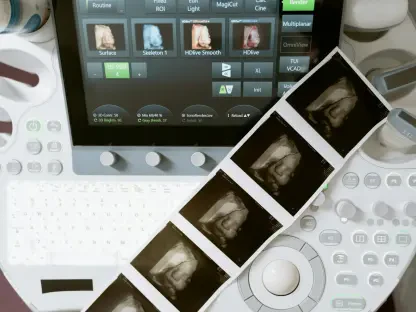A recent study conducted by The University of Texas Southwestern Medical Center has illuminated patient attitudes towards the integration of artificial intelligence (AI) in mammogram screening, revealing a mixture of cautious support and notable concerns. This study, which surveyed 518 patients from February to August, sheds light on significant preferences and apprehensions regarding AI as a secondary reader in mammographic examinations. With most participants having limited knowledge about AI, the findings offer crucial insights for the deployment of this technology in healthcare.
Patient Preferences and Comfort Levels with AI
The study’s findings indicate that a remarkable majority of patients express a preference for AI to function alongside radiologists rather than independently. Only 4.4% of respondents were comfortable with AI interpreting mammograms without human intervention. In contrast, 71.0% preferred AI as a complementary tool, underscoring the importance of human expertise in medical diagnostics. This preference aligns with the broader healthcare community’s cautious approach towards AI, given its potential yet unproven reliability in clinical settings.
When AI flagged an abnormal screening, a substantial 88.9% of participants favored having a radiologist review the findings. This statistic suggests a strong belief among patients in the necessity of human oversight to ensure accuracy and mitigate risks. Interestingly, 51.3% of respondents were amenable to AI reviewing cases that had already been assessed by radiologists, indicating some level of trust in AI’s capabilities, provided it acts in a supporting role rather than primary.
Educational and Demographic Factors
Examination of the study’s data reveals that trust in AI correlates significantly with patients’ education levels. Participants with higher education displayed a notably higher acceptance rate of AI’s role in mammogram screening, with an odds ratio (OR) of 2.05. This trend suggests that familiarity with technology and a better understanding of its benefits and limitations might foster trust. Consequently, educational initiatives aimed at informing patients about AI’s role and efficacy could prove beneficial in increasing acceptance across various demographics.
Conversely, concerns about AI’s potential biases were more pronounced among certain racial groups. Hispanic respondents, with an OR of 3.32, and non-Hispanic Black patients, with an OR of 4.31, expressed significantly higher levels of apprehension compared to their non-Hispanic White counterparts. These findings highlight the need for culturally sensitive approaches when implementing AI technologies in healthcare. Ensuring that AI systems are transparent, unbiased, and inclusive is critical to gain the trust of diverse patient populations.
Implications for AI Implementation in Healthcare
The study’s authors, including Basak E. Dogan, emphasize that understanding patient perceptions is crucial for effective AI integration in medical imaging. Since patient trust and acceptance are pivotal for successful healthcare outcomes, addressing the varied concerns and preferences demonstrated in the study is essential. Tailoring AI deployment strategies to accommodate these differences can enhance patient adherence to screening recommendations, ultimately improving diagnostic accuracy and treatment efficacy.
Healthcare providers and technologists are encouraged to focus on creating AI systems that act as supportive tools rather than replacements for human judgment. By ensuring that AI systems are rigorously tested, transparent, and serve to augment human expertise, the medical community can build patient confidence in these innovative technologies. Furthermore, targeted educational campaigns can demystify AI for patients, aligning their expectations with the realistic capabilities of AI in enhancing mammogram screening accuracy.
Shaping the Future of AI in Mammography
A recent study by The University of Texas Southwestern Medical Center explored patient perspectives on using artificial intelligence (AI) in mammogram screening. The research, conducted between February and August, surveyed 518 patients to understand their opinions on AI being used as a secondary reader in mammographic exams. The findings revealed a mix of cautious support and significant concerns among patients. Despite many participants having limited knowledge about AI, they generally showed cautious optimism about its potential benefits while expressing reservations about reliability, accuracy, and the possibility of errors. These insights are crucial for shaping how AI technology is integrated into healthcare, particularly in mammography. The study emphasizes the importance of educating patients on AI’s role and capabilities to alleviate concerns and build trust. It highlights the need for transparent communication to ensure patients are comfortable and informed about this technological advancement in medical screenings.









